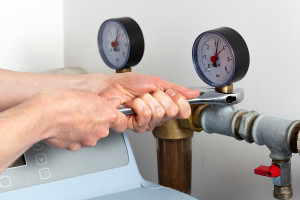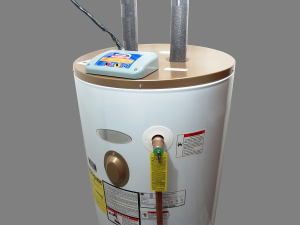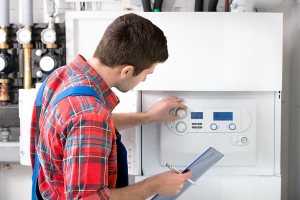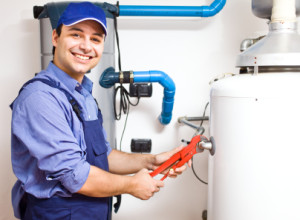 Water heaters play a big role in your home. They help satisfy all your hot water needs. Nevertheless, these products attract a few common issues no matter the brand, such as; leaks, no hot water, or not enough hot water.
Water heaters play a big role in your home. They help satisfy all your hot water needs. Nevertheless, these products attract a few common issues no matter the brand, such as; leaks, no hot water, or not enough hot water.
The fact of the matter is that almost everyone has encountered these problems at one time or another.
Below are causes of common problems and ways to take preventive measures for the costly repairs.
Hot Water Heater Leaks
Leakages are the most common problem people experience. A person will usually notice there is a leak when there is a puddle of water around the bottom of the water heater tank. The problem often leads back to the reservoir itself. This is usually due to a crack in the internal tank. In this case, replacement is paramount.
The problem is mainly caused by the accumulation of water minerals. What does this mean? Well, it simply means that over time, water minerals accumulate and reacts with the steal. In the long run, it will cause corrosion. Therefore, when you notice a leak, it is paramount to call an expert plumber. The plumber will advise you on the best way forward.
It is not necessary to replace the whole unit though; the plumber may perform few repairs if the problem originates from the top. This kind of leak occurs if the plumbing part fails.
No Hot Water Or Not Enough Hot Water
Other common water heater repair issues can either be no hot water or not enough hot water.
No Hot Water…
If your issue is no hot water, then the problem may be the pilot light if you are using a gas heater. The good news is that you can turn on the pilot light yourself. Nonetheless, if you haven’t done this in the past or have no idea how to do it, then it is wise to call an expert.
If you are using an electric tank and you do not have hot water, it is wise to check your circuit breaker to see if it has tripped. If the breaker has not tripped, call a professional.
Not Enough Hot Water…
If the system is not heating water as needed, and there aren’t any leakages, then flushing the tank may be the best way forward so that mineral deposits are not reducing the system’s efficiency. Mineral buildup generally causes the problem. As time passes, minerals build-up occurs, which reduces the amount of hot water the system produces.
Summary
These are few common issues that people with either gas and electric water heaters may experience. If your problem is beyond the above issues, it is wise to call a plumber near you to fix your hot water heater. Do not even consider doing any repairs if you do not know what you are doing.
Always call a professional plumbing service near you on Long Island if you experience a problem with your heater. At times all you need is a quick water heater repair job.
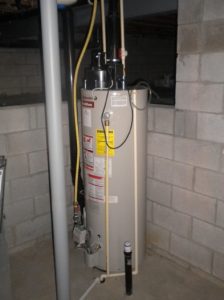 Few frustrating situations can be compared to you having a hot shower in the morning and then all of sudden the water becomes cold. This points to one thing; your water heater has broken down and needs repairs unless you are content with the long and uncomfortable cold morning showers.
Few frustrating situations can be compared to you having a hot shower in the morning and then all of sudden the water becomes cold. This points to one thing; your water heater has broken down and needs repairs unless you are content with the long and uncomfortable cold morning showers. Few frustrating situations can be compared to you having a hot shower in the morning and then all of sudden the water becomes cold. This points to one thing; your water heater has broken down and needs repairs unless you are content with the long and uncomfortable cold morning showers.
Few frustrating situations can be compared to you having a hot shower in the morning and then all of sudden the water becomes cold. This points to one thing; your water heater has broken down and needs repairs unless you are content with the long and uncomfortable cold morning showers.
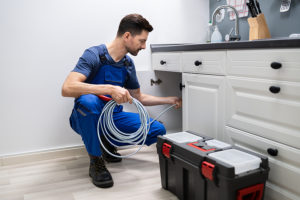
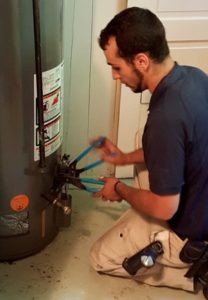
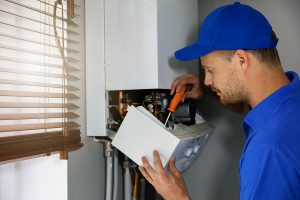

 Water heaters play a big role in your home. They help satisfy all your hot water needs. Nevertheless, these products attract a few common issues no matter the brand, such as; leaks, no hot water, or not enough hot water.
Water heaters play a big role in your home. They help satisfy all your hot water needs. Nevertheless, these products attract a few common issues no matter the brand, such as; leaks, no hot water, or not enough hot water. 